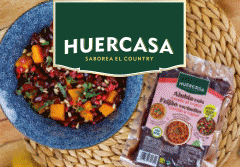The management of the Carlet cooperative (Valencia) is constantly searching for alternatives that make production more feasible
Within an extremely difficult context, the organisation from the Ribera region, the greatest exponent of stone fruit in the Valencian Community, continues backing a type of production that is in its members’ actual DNA. Its manager, José Climent explains that “in spite of the difficulties with stone fruit, we must continue with a line of state of the art modernisation and the search for new opportunities that give farmers profitability and, obviously, customer satisfaction.”
Opposite to what has happened in Andalusia, in Valencia there has been no mass grubbing. “It is true that we are living through a period with significant surplus, but most farmers continue to stoically battle through these campaigns, partially because our other two production bases help us, persimmons and citrus fruits.”
More promotion and less grubbing
“The members are not economically prepared to face up to grubbing and new investments. It would possibly mean giving up”. And accordingly, Climent, states that he believes more in large scale promotion than in grubbing. “And this is in spite of the production surplus all over the country.”
This year’s volumes are being presented with the consequences of two frosts (the one on the 22nd-23rd of February and the one on the 21st-22nd of March) that will reduce the harvest by up to 40%. With the first one, nectarines and peaches were affected most; the second frost damaged all species, including flat peaches and apricots and with a more extensive calendar, since the first one only damaged the extra early varieties.
This reduction in the entire calendar has its good side, since the first forecasts point towards the fact that there will not be a significant accumulation of fruit from the start of the campaign. “We hope that the traditional market will be able to absorb these volumes until the chains start their programmes in May and the prices don’t plummet, as occurred last season, because they don’t recover.”
The organisation’s overall volume is between 12 and 14 million kilos of fruit: around 7,000 are nectarines, 2,000 peaches, around 2,000 flat peaches, 1,000 of apricots, along with some flat nectarines. The main destinations are in Central Europe, where France and Italy play outstanding roles and are very familiar with the prestige of the Diplom brand.
Regarding the different species, Climent believes that “apricots have peaked and there is an important imbalance between supply and demand and flat peaches have gone from success to surplus over a very short period.”
The change dynamics in the sector are very fast, with intensive crops that produce a great deal, very quickly, which means market saturation when a product shows a good price development, since everyone ends up opting for the same produce. “This is a problem that is already on the table with stone fruit and it could occur in the near future with persimmons,” the executive concludes.





















